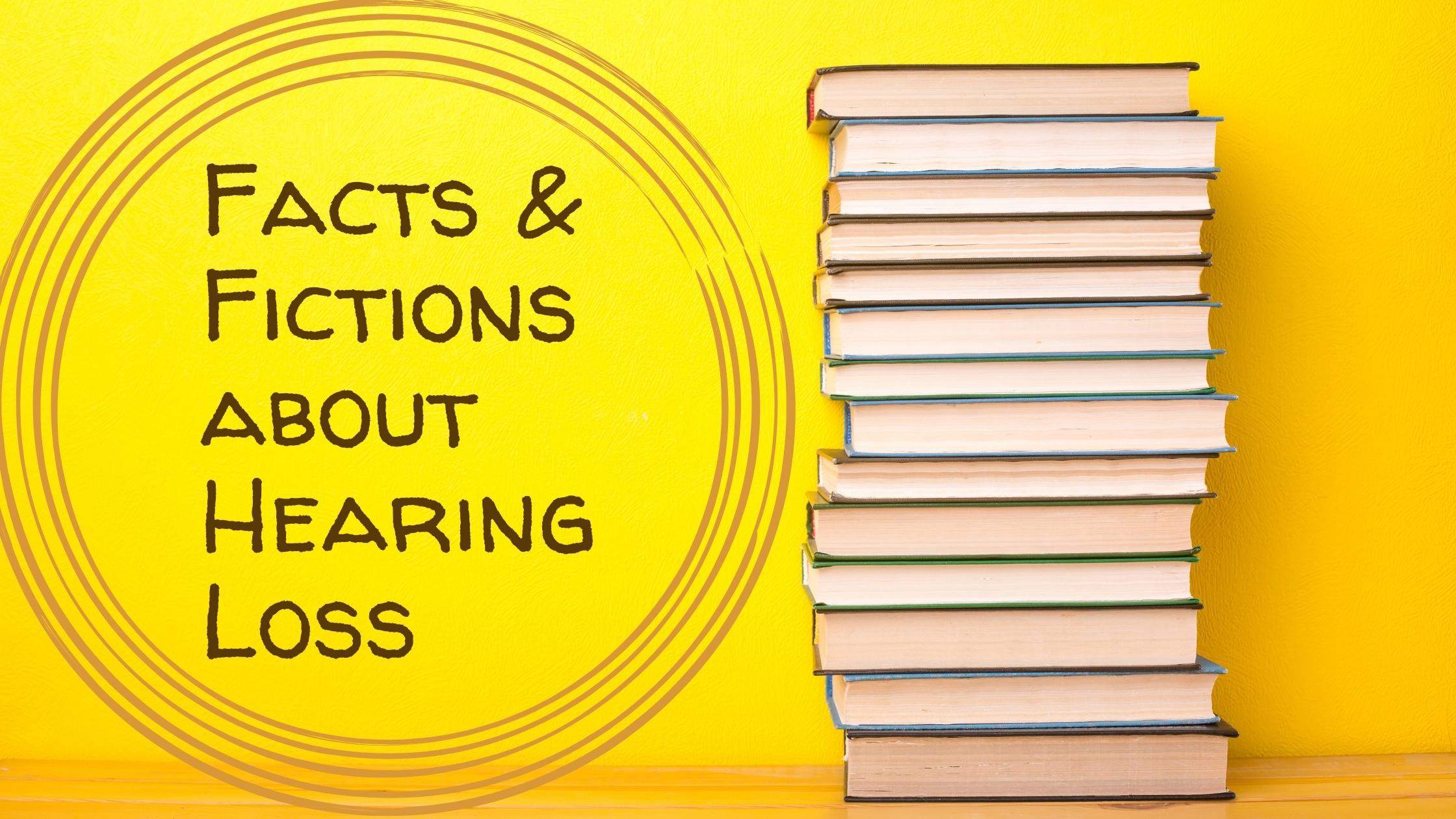Hearing loss is the third most common medical condition in the US, affecting at least 48 million people. Worldwide, hearing loss affects 466 million people, particularly in low-income regions, but that number is expected to rise to 700 million in the next 30 years. It is important to know as much as you can about hearing loss and what you can do to prevent your and your loved ones from developing this serious disability. There are a lot of misconceptions around hearing loss which can add up to serious and irreversible mistakes and it’s important to decipher the fact from the fiction.
Fiction: Hearing loss does not affect young people.
Fact: The most common demographic affected by hearing loss are those 65 and older. One in three are expected to have hearing loss after 65 and this number becomes one in two after 75. However, hearing loss can happen to anyone regardless of age. Some children are born with hearing loss, while others develop it later in life for various reasons. The Center for Disease Control and Prevention (CDC) estimates that 20 percent of people in their 20s are already experiencing some degree of hearing loss. This is often attributed to exposure of loud noise at work or for recreation. However, hearing loss can also occur from infection, head trauma and exposure to ototoxic chemicals and medications. The World Health Organization estimates that 1.1 billion young people world-wide are at risk for permanent hearing loss.
Fiction: Exposure to loud noise did not cause me to have hearing loss.
Fact: Hearing loss is a progressive condition. It starts slowly and creeps up over time. Often people don’t even realize they have a serious hearing loss until they struggle to hear in even the most ideal of situations. Meanwhile they are missing tones, pitches, and sounds. You may be missing the chirping of birds or the hum of the wind in the trees. That one time you were at a concert without earplugs may have left you with ringing ears after, but your hearing may have seemed to return to normal the next day. While this type of abuse to your ears may not be apparent now, years later these exposures conglomerate into a severe hearing loss.
Fiction: I can live happily without treating my hearing loss
Fact: Hearing loss not only affects how you hear, but how you communicate. This can quickly build up into rifts in communication which affects relationships with family, significant others and co-workers. This can affect your self-confidence and cause chronic social anxiety and depression. While it is true that you can live without treating your hearing loss, it won’t exactly be pleasant. We are social creatures as humans who rely on regular socialization to keep us engaged and our bodies and minds feeling their best. When we stop socializing due to constant misunderstanding due to hearing loss, we often become withdrawn, which can affect cognitive health. Overtime, unaddressed hearing loss can lead to an increased risk of dementia, which can affect the memories of your lifetime. Aside from cognitive and emotional effects of untreated hearing loss, it also diminishes the ability to localize where sounds are coming from. While this may not seem serious, it is why those with untreated hearing loss are more susceptible to accidents, falls and hospitalizations.
Fiction: If other people would speak up, I wouldn’t have trouble hearing.
Fact: If you have hearing loss it is reasonable to ask for accommodations to help you hear. However, it is likely that if you feel someone is speaking too quietly that it is an issue with your hearing. There is no substitute for hearing aids which amplify the frequencies and pitches you struggle with. Often people who speak low or in higher ranges are just out of reach for damaged ears. Hearing aids address this issue, so you don’t need to ask them to repeat themselves constantly.
Fiction: Hearing aids are too expensive for me.
Fact: The most innovative hearing aids often come with a hefty price tag but when you consider the risks of untreated hearing loss, the price is rather reasonable. The Better Hearing Institute found that those with hearing loss lost on average $30,000 annually when compared to contemporaries with normal or treated hearing. This fact alone can close the gap on the price of hearing aids, making them a wise financial investment.
Fiction: There is no treatment for hearing loss.
Fact: Hearing loss is permanent, but treatment using hearing aids or cochlear implants is very effective. To find out the best treatment for you, schedule a hearing exam today.

